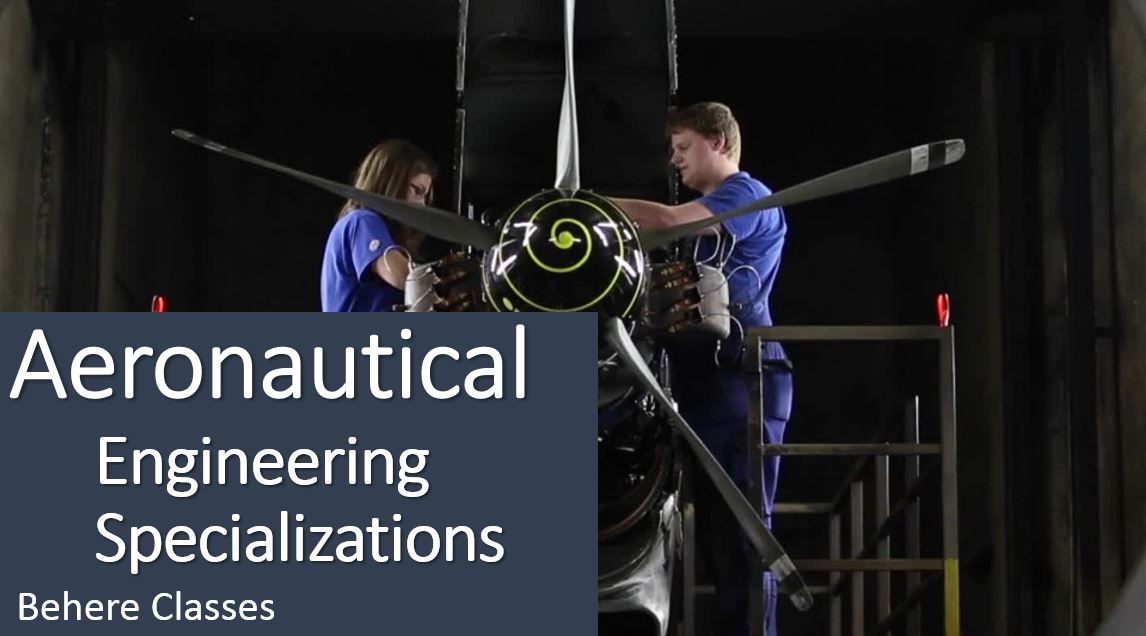Exploring Specializations in Aeronautical Engineering
Sectors Encompassing aeronautical Engineering:
1. Aviation Industry
2. Aerospace Industry
3. Defense Sector
4. Space Exploration
5. Research and Development
6. Aircraft Manufacturing
7. Airlines
8. Government Agencies
9. Aviation Consulting
10. Education and Academia
11. Unmanned Aerial Vehicle (UAV) Industry
Duration & course Level:
1. Aircraft Design and Development: M.Tech, 2 years
2. Aerodynamics and Fluid Mechanics: M.Tech, 2 years
3. Avionics and Flight Control Systems: M.Tech, 2 years
4. Aerospace Propulsion: M.Tech, 2 years
5. Structural Design and Analysis: M.Tech, 2 years
6. Aircraft Systems Integration: M.Tech, 2 years
7. Materials Science and Engineering: M.Tech, 2 years
8. Spacecraft Design and Operations: M.Tech, 2 years
9. Aircraft Maintenance and Repair: B.Tech, 4 years
10. Flight Testing and Evaluation: M.Tech, 2 years
Salary Package:
Sure, here are the average salary packages for various specializations after completing aeronautical engineering:
1. Aircraft Design and Development: INR 6-12 lakhs per annum
2. Aerodynamics and Fluid Mechanics: INR 5-10 lakhs per annum
3. Avionics and Flight Control Systems: INR 7-14 lakhs per annum
4. Aerospace Propulsion: INR 6-12 lakhs per annum
5. Structural Design and Analysis: INR 6-12 lakhs per annum
6. Aircraft Systems Integration: INR 7-14 lakhs per annum
7. Materials Science and Engineering: INR 5-10 lakhs per annum
8. Spacecraft Design and Operations: INR 8-15 lakhs per annum
9. Aircraft Maintenance and Repair: INR 4-8 lakhs per annum
10. Flight Testing and Evaluation: INR 6-12 lakhs per annum
These figures may vary based on factors such as experience, location, employer, and industry sector.
Specializations:
1. Aircraft Design and Development
2. Aerodynamics and Fluid Mechanics
3. Avionics and Flight Control Systems
4. Aerospace Propulsion
5. Structural Design and Analysis
6. Aircraft Systems Integration
7. Materials Science and Engineering
8. Spacecraft Design and Operations
9. Aircraft Maintenance and Repair
10. Flight Testing and Evaluation
Education & Training Requirements:
1. Aircraft Design and Development: Bachelor's degree followed by on-the-job training.
2. Aerodynamics and Fluid Mechanics: Bachelor's degree with training in computational fluid dynamics.
3. Avionics and Flight Control Systems: Bachelor's degree with focus on electronics and system integration.
4. Aerospace Propulsion: Bachelor's degree with emphasis on thermodynamics and fluid mechanics.
5. Structural Design and Analysis: Bachelor's degree with expertise in finite element analysis.
6. Aircraft Systems Integration: Bachelor's degree with training in systems engineering.
7. Materials Science and Engineering: Bachelor's degree with specialization in materials engineering.
8. Spacecraft Design and Operations: Bachelor's degree with focus on spacecraft dynamics.
9. Aircraft Maintenance and Repair: Bachelor's degree followed by certification and on-the-job training.
10. Flight Testing and Evaluation: Bachelor's degree with coursework in flight dynamics.
Industrial Overview:
In aeronautical engineering, innovation and creativity are vital for enhancing aircraft performance, efficiency, and safety. Engineers devise novel aerodynamic designs, optimize propulsion systems, and creatively solve challenges in structural integrity and system integration. Advanced computational tools and interdisciplinary collaboration further drive progress, shaping the future of aerospace technology.
Industry/field Future:
The future of aeronautical engineering is marked by technological advancements, sustainability efforts, and the expansion of space exploration. Innovations in propulsion systems, materials, and automation are driving efficiency and safety in air travel. With the emergence of commercial space travel, aerospace engineers are poised to play a crucial role in shaping the future of aviation and space exploration.

